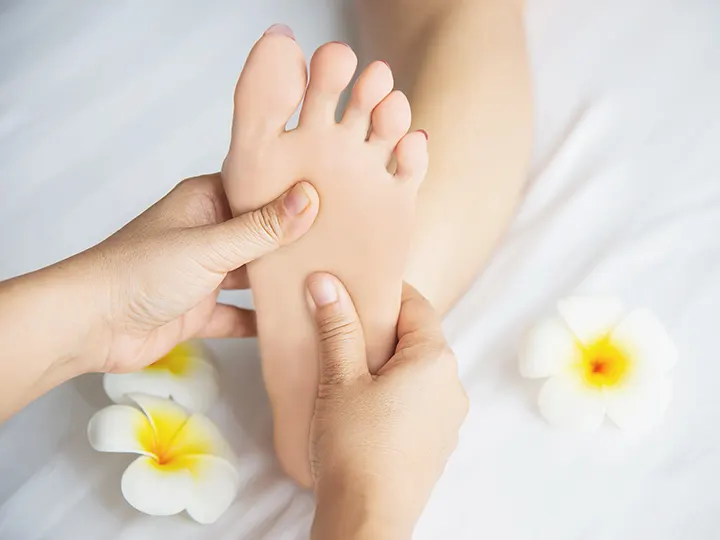
Historical Development And Benefits Of Foot Massage
The historical development of foot massage and the practice of using therapeutic touch to treat various health conditions dates back thousands of years. Evidence of foot massage has been found in ancient Egyptian, Chinese, and Greek cultures, where it was considered a form of self-care and a way to promote overall well-being.
In ancient China, the practice of foot massage, known as "reflexology," was developed as a way to balance the body's energy and promote healing. The Chinese believed that different areas of the feet corresponded to different organs and systems in the body, and that massage could help to improve the flow of energy, or "qi," throughout the body. This practice eventually spread to other parts of Asia and was integrated into traditional medicine systems, such as acupuncture.
In ancient Greece, foot massage was used as a therapeutic tool to treat various physical and mental health conditions. The Greeks believed that the feet were connected to the rest of the body through the nervous system, and that massage could help to promote relaxation, reduce pain, and improve circulation. The Greek physician, Hippocrates, is credited with incorporating massage into his medical practice and is considered one of the earliest practitioners of therapeutic touch.
In the Middle Ages, foot massage was used in Europe as a way to promote hygiene and prevent disease. The feet were considered one of the most important parts of the body, and regular massage was seen as a way to maintain overall health and well-being.
In the 19th and 20th centuries, foot massage became more widely recognized as a therapeutic tool and was integrated into modern medicine and physical therapy. In the 1920s, a Danish therapist named Eunice Ingham developed a system of foot reflexology that was based on the principles of traditional Chinese medicine. Ingham's system became the foundation of modern reflexology and is still widely used today.
In recent years, foot massage has gained popularity as a complementary therapy for various health conditions, including stress, pain, and sleep problems. Research has shown that foot massage can be effective in reducing stress and anxiety, improving sleep quality, and reducing pain and inflammation.
The health benefits of foot massage are numerous and can be attributed to several factors. First, massage helps to improve circulation, which can increase the flow of oxygen and nutrients to the cells and tissues in the feet. This can help to reduce pain, swelling, and stiffness, and improve overall health and well-being.
Foot massage can also stimulate the nervous system, which can help to reduce stress and anxiety. The pressure applied during massage can activate the release of endorphins, which are the body's natural painkillers and mood elevators. This can help to reduce pain and improve overall mental health and well-being.
In addition, foot massage can also improve flexibility and mobility, which can be especially beneficial for people with conditions such as arthritis or plantar fasciitis. Massage can help to stretch and loosen tight muscles and connective tissue, which can reduce pain and improve flexibility and range of motion.
Finally, foot massage can also promote relaxation and help to improve sleep quality. The pressure applied during massage can activate the release of serotonin, a hormone that is associated with sleep and relaxation. This can help to improve sleep quality, reduce stress and anxiety, and promote overall well-being.
In conclusion, the historical development of foot massage and the health benefits of therapeutic touch are numerous and wide-ranging. Whether used for stress reduction, pain management, or as a complementary therapy for various health conditions, foot massage remains an important part of traditional and modern medicine, and an effective tool for promoting overall well-being.